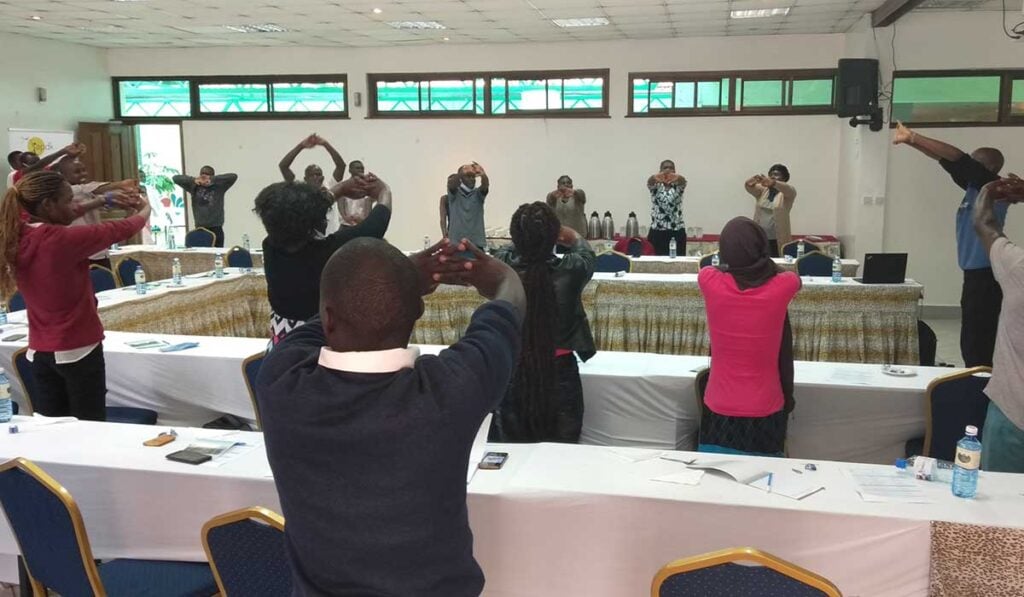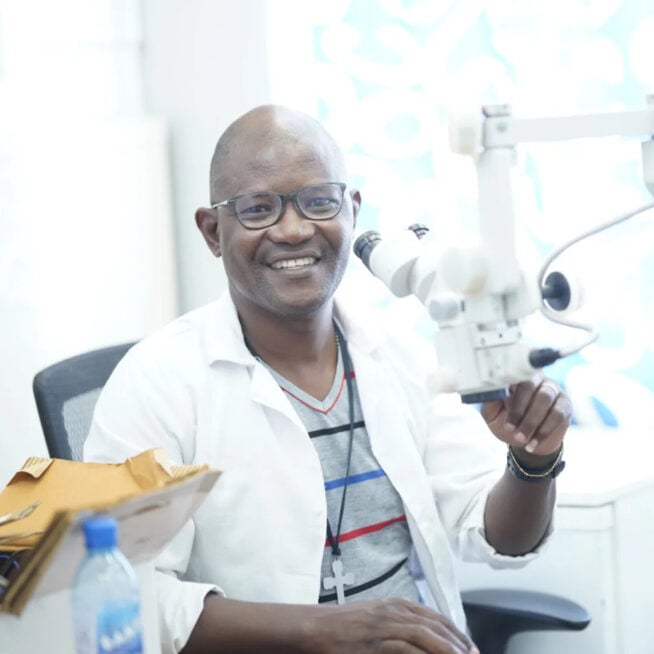Want to transform lives with us? Stay in touch and hear about our news, activities and appeals by email!
Piloting innovative solutions to improve access to employment for deaf people

CBM is part of a consortium, led by pan disability charity Leonard Cheshire, delivering the Innovation to Inclusion (i2i) programme to help 10,000 women and men access employment in Kenya and Bangladesh.
As part of i2i, CBM is working with the Association for the Physically Disabled Kenya (APDK) to pilot the use of innovative solutions to support deaf people to access and retain paid employment.
People with disabilities in low- and middle-income countries often find it difficult to earn a living because they face major barriers to access education, training and employment – including stigma and discrimination from employers who do not know how to include them.
Only 34% of people with disabilities in Kenya are estimated to be employed – and those that are employed are mainly in the informal sector. The impact of COVID-19 has compounded the exclusion of people with disabilities: 68% of persons with disabilities reported not being able to work during the pandemic, while 65% felt insecurity in their current work, according to research from the i2i study Impact of Covid-19 on the lives of people with disabilities (open link in new tab).
This pilot project in three of Kenya’s largest cities (Nairobi, Kisumu and Mombasa) will trial various interventions to see which are most effective in increasing meaningful inclusion of deaf men and women in waged employment in the private sector. The pilot – which is co-funded by CBM and UK aid – will include 100 deaf people aged 18-35, including at least 40 women. The interventions will also target family members of the participants, employers and transport providers.
The interventions will be designed in close consultation and with participation of organisations of people with disabilities (OPDs), in particular Deaf Empowerment Kenya. The project will use participatory monitoring and learning approaches to ensure that the deaf participants are fully involved in documenting the learning from the project and how it is put into action.
The activities will tackle six main areas of exclusion of deaf people from the workplace:
- Safe travel to work
- Workplace communication
- Skills and confidence
- Employer knowledge and attitudes
- Accessible workplaces
- Inclusive policies.
The project has kicked off by establishing peer groups of deaf workers and jobseekers, who will meet once a week to provide peer support and help each other negotiate the employment journey. In collaboration with consortium partners, the team have also sensitised public transport companies on accessible and safe transportation for people with disabilities. The project has also worked to identify and sensitise suitable companies interested in hosting deaf candidates, and will work with them to provide a safe and conducive learning environment for deaf female and male employees, including through training supervisors and co-workers on Sign Language, conducting workplace accessibility assessments and providing transparent face masks. To date, 199 staff members from 16 companies have been trained on basic Sign Language.
CBM and APDK, together with OPDs, are identifying companies who are particularly suitable and interested in hosting deaf candidates, and will work with the companies to provide a safe and conducive working environment for deaf female and male employees, while working with deaf candidates to build their skills and ability to thrive in the workplace.
Find out more about the i2i programme here (open link in new tab).
Image: Participants at the 2-day launch event for the pilot project in Kenya, in February 2021.




